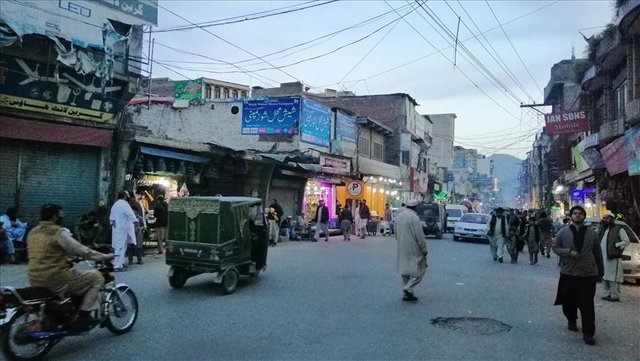
Whenever she passes by a school on any Lahore street, it reminds Khanza Gul of her childhood best friends, friend-cum-teacher Afshan Yousafzai, books, stories, and last but not the least bombs, guns, and explosions.
The 20-year-old garment factory employee of Lahore’s northern part has never forgotten her village which was on the foothill of scenic Swat valley headquarters Mingora. She went there in 2018 on a single day trip to see her house where she was born to a local orchard owner’s family and where she spent her life’s first 10 years with her brother and parents. She remembers April 2009 when the weather was full of spring bloom, but tourists had not started trickling in there.
Khanza Gul was introduced to this scribe through a mutual friend for she wanted some professional help to introduce her Swat crafts online.
“It is my idea of being connected with Swat, my homeland, which I see most of the time in my dreams,” she sighs.
What brought her to Lahore and why does she miss Swat so much?
“It’s a long story. It is about conflicts. It is about displacement, which is the collateral damage in any war,” Khanza choked tears back.
“I was class five student at the primary school of the village. I had so many friends whose names I never forgot. I had amazing teachers, who made our school like a second home to us to so extent that we really hated days off and long winter vacations. Though we all belonged to the same hamlet and could see each other but the school provided us longer encounters, which otherwise were hard to do because of strict family traditions.”
Everything was going well until 2007 when for the first time; Khanza remembers she heard about the Taliban and military presence in the nearby city of Mingora.
“It didn’t worry us much as our village was a peaceful locality. By the start of 2009, however, everything changed drastically as the Taliban started raiding our village and threatening our teachers with consequences for imparting girl education. Our teachers stopped coming to school and consequently, we stayed at home. Then one night we heard explosions and shelling for the whole night, and the next morning, we left our village for a camp for displaced people near Mardan.”
Life at the camp was not easy.
“It did not feel like home at the camp. We were cramped in tents. Security was intense while every family living there had some solid reasons to cry and weep the whole day. My school had been bombed while some of our neighbours had been picked by militants. I would often cry too.”
After six months, the people were allowed to leave the camp.
“When we arrived in the village, we saw it changed, completely changed. Our orchard had been destroyed by the militants. Our house was not livable. My father sold the land to a local seminary man and took us to Lahore. Here he set up a tea kiosk and enrolled me to a stitching center.”
Since then, the family visits the hamlet once a year only for a daytime trip to see their neighbours. The family stays in Mingora at Khanza’s aunt’s house.
“I’m earning a good sum in Lahore through my Swat crafts but I often think of how the war changed my life; it impacted my education. I would have been a better-educated person, had we had been in the village.”
War has changed many lives.